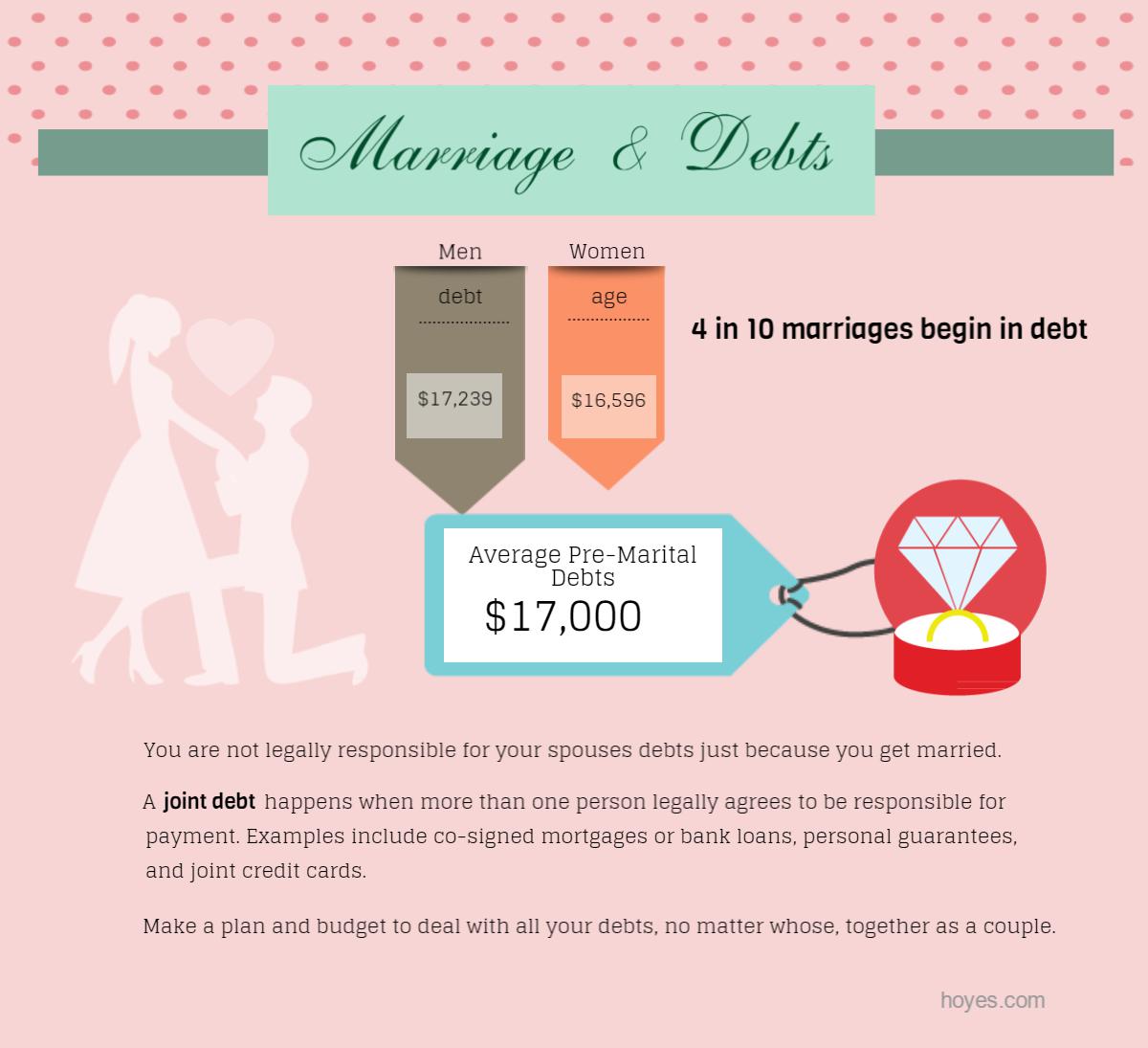
As you enter your 30’s and 40’s, you are likely entering a period of many milestones: marriage, family, a new home, perhaps a career change. If you had good financial habits during your 20’s you will have paid down most of your student debt, avoided high credit card balances, built a small emergency fund and set up your retirement savings. If not, it’s not too late to get on track.
The key to keeping credit under control is to be prepared for upcoming life events, sticking to a goal centered budget and saving for what you want.
Table of Contents
Dealing with milestones
- Talk about money before getting married.
- Be prepared for the financial impact of maternity leave, child care costs.
- Run the housing numbers. Rent vs buy? Large or small? Now or later?
- Prepare and stick to a budget that is goal-driven.
- Let compound interest work in your favour – save, don’t borrow.
Merging finances
More than 1 in 3 couples approaching marriage do not discuss finances before entering into a permanent relationship. With more than 4 in 10 marriages starting out with pre-marital debts, that means many will be surprised by how much their partner’s debt obligations. While you do not, by virtue of being married, assume legal obligation for your spouse’s debts, it is better to deal with your financial planning, including debt repayment, as a couple.
Here are some tips on successfully merging your finances along with your relationship:
- Make a combined budget, together. Budgets are far more successful when both parties are given the opportunity to provide input.
- Set common goals but allow for personal spending.
- Let whoever is better at managing bill payments do that task. If someone is better at research, let them do the comparison shopping. Big decisions should be made together but that doesn’t mean the tasks can’t be allocated. Make sure each partner has enough information to step into the other’s role during times of emergency or life changing event.
- Be upfront about how much debt you bring into the relationship. Don’t hide any spending. Own up to past financial lessons.
- Communicate regularly about finances. This is key to preventing surprises and financial stress.
Should you have one bank account or two?
- A joint chequing account is easier to manage but can get complicated if you have pre-marital debts & personal obligations such as child support.
- Having a common joint account plus separate accounts for personal expenses can also work. Agree upfront about how much goes in each period & what get’s paid out of which account.
- Decide which option is best before you tie the knot.
Dealing with debt
- Don’t lay blame. Deal with your debt as a couple no matter where it came from.
- Faster is better. Pay off debt before achieving any loftier goals like buying a new car or vacation. The longer you are in debt, the more it costs.
- Make a plan. Tackle the debt head on, and together. Make a budget, find ways to cut back on saving and put everything you can towards debt repayment.
- Build an emergency fund. Your expenses are likely to go up, not down now that you have kids. If you’re living off two paycheques, the financial risk of an unexpected event is huge.
Keep separate credit scores
Having your own credit score is a good idea in the event of a divorce, financial mishap or death of a spouse.
- You don’t assume your spouse’s debts just because you are married.
- Keep separate credit cards so each of you builds a separate credit history.
- Pay off your balances together, but build your history separately.
- Talk about each person’s credit report and credit score before taking on joint debt. Make sure you understand your responsibility and the rights of creditors before taking on joint debt.
Buying the family home
Your home will likely be the largest purchase you ever make. The key to financial success is to take as much emotion as possible out of the decision making process.
- Start saving for a down payment long before your family grows.
- Be careful not to become house poor. Maxing out your mortgage may result in a very tight budget and cause financial stress.
- Buy a reasonably sized home. It not only reduces your mortgage, but cuts back on other costs including property taxes, insurance, utilities, maintenance, and furnishings.
- Consider all closing costs including legal fees before you buy.
- Consider renting as a valid option and invest the savings.
- Don’t feel you have to furnish every room right away.
- Go for the shortest amortization period you can afford. The faster you pay off your mortgage (paying weekly or bi-weekly instead of monthly), the less interest you will pay.
- Understand what your home insurance covers and doesn’t cover. Comparison shop insurance rates when it comes for renewal.
Embrace frugal living
As your family grows, so too will your expenses. Living frugally doesn’t mean you can’t take a vacation or enjoy an evening out, but embracing the concept of watching the small dollars can make the difference between a balanced budget or increased reliance on credit to make ends meet.
Look for ways to increase savings or speed up debt repayment:
- Do you need two cars? Can you buy a less expensive car?
- Discuss needs versus wants. Memberships, clothing costs, personal care can become luxury items too just as much as a vacation.
- Track all spending. Decide what to do with any savings together, deal with any shortfalls together.
- Cook and eat at home. Menu plan before your shop.
- Reduce (do without) Reuse (hand-me-downs are OK) Recycle (share tools and bulk buys)
- Stop the waste. Don’t buy what you can’t eat or use.
- Avoid fad or impulse purchases.
- Be creative with gift giving. Homemade items save money. A visit is better than a gift, draw names.
Teaching kids about debt
Children learn money habits from their parents. In addition to teaching them the value of money and how to save, here are six lessons kids should learn about debt:
- It is MUCH easier to get into debt than it is to get out of debt. Never approach debt lightly.
- Borrowers need to repay the amount they spend, plus interest. Interest can add up quickly and cost you a lot of money.
- All debt has risk. Sometimes you lose your job, get sick or life throws you a curve. Make sure you always have a backup plan such as emergency savings.
- Once you get behind it’s hard to catch up. Interest on interest adds up quickly when you miss payments.
- Debt limits your freedom to choose. If you already owe money, you can’t afford something else. If you are stuck with a big car loan, you can’t take a vacation. Even ‘good debt’ like student debt and a mortgage limits your ability to move, or take a lower paying job for experience, reset your priorities.
- Debt is easy to get, but can quickly get out of hand if you don’t keep track.
When it comes to money, the old expression “an ounce of prevention is worth a pound of cure” is true. Taking some time now to discuss finances with your partner and children is key to building a financially healthy future.







